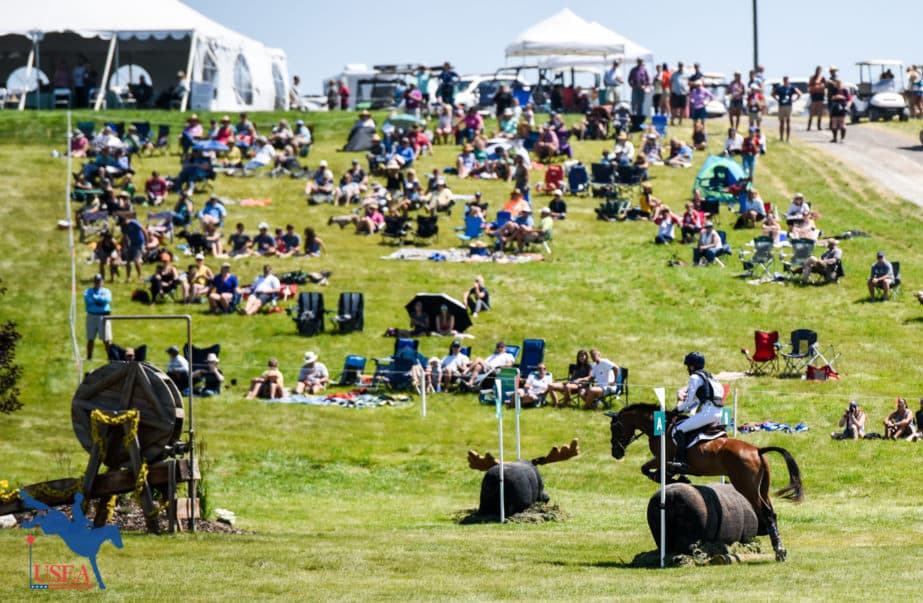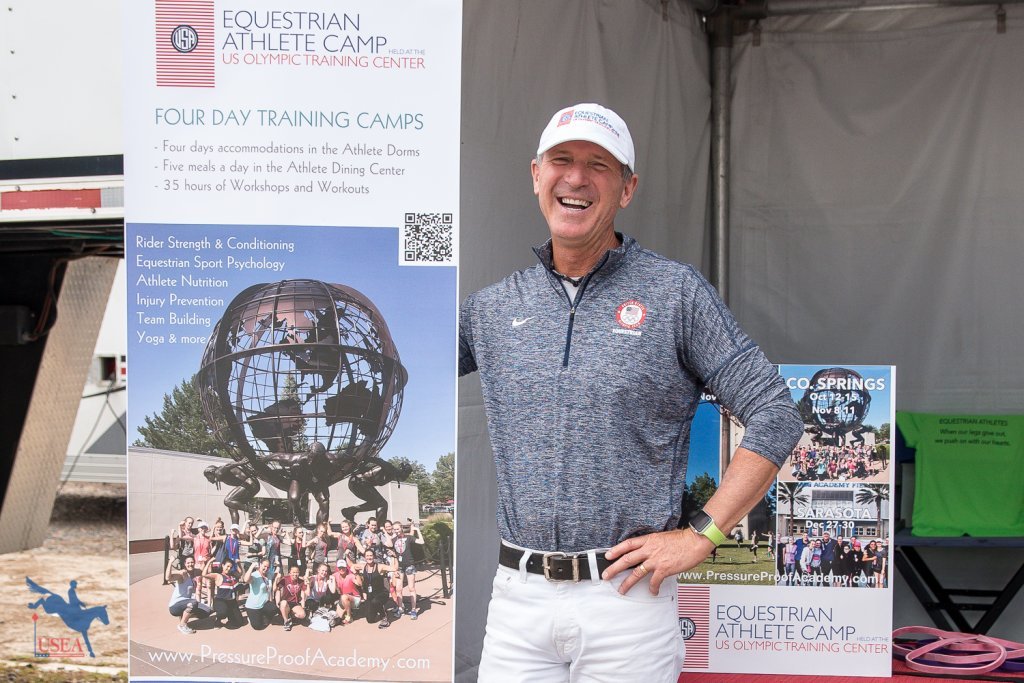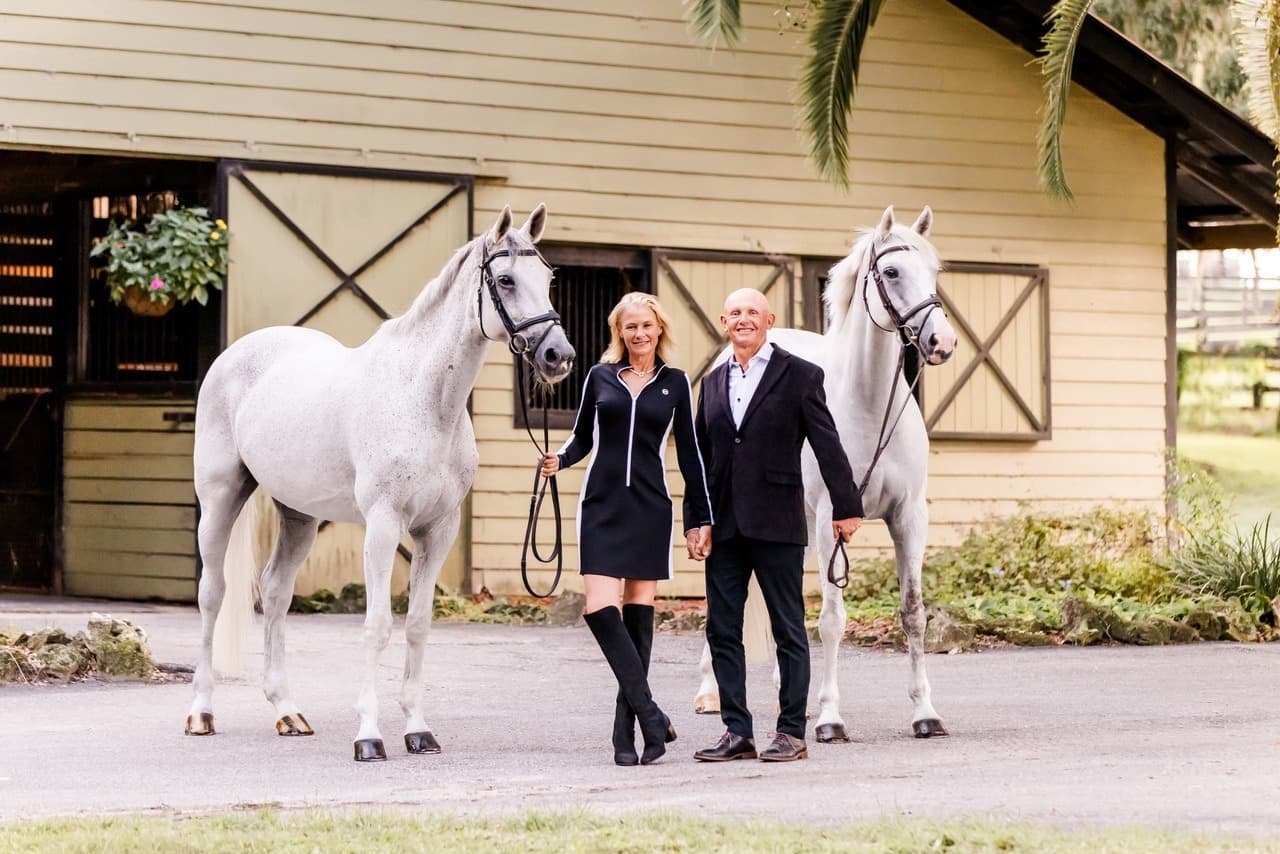Daniel Stewart's Tip of the Month: Distracting Distractions

Riding just might be the most distracting sport in the world. From spooks, trips, and bucks to run-outs, refusals, and rails - the only thing predictable about our sport is that it’s unpredictable! After all, you never see a skier yelling at his skis because they spooked at snow, and there’s no such thing as a chestnut-mare-tennis-racket that ovulates the day of the big match! If you can just figure out how to keep your train of thought on track, you’ll be well on your way to riding success.
In order to keep your focus in the middle of our sport’s greatest distractions you’ll need to first get into a sort of distraction-proof mindset called the individual zone of optimal functioning, or IZOF for short. Perhaps more commonly referred to simply as the zone, it refers to the narrow, focused, and calm mental state where you function optimally. It’s a mindset free of doubt and distractions, surprises and stress, and is perhaps the single most important skill you can teach yourself.
So, just how do you teach yourself to get into the zone? Well, there are actually two ways to make it happen but both depend on first creating something called a flow-state - a sort of subconscious rhythm or harmony that changes your thinking from forced, mechanical, and over-analyzing to calm, confident, and un-rushed.
And how do you create the flow-state? Well, the first step is to remember that you’re going to need to find a rhythm or harmony because that’s what’s gets you there. Luckily there are two ways to do this. The first technique is called targeting, which happens when you focus your thoughts on rhythmical sounds while riding (like your horse's breathing, his hoof falls, or the squeaky sound your saddle makes when you ride). The second is called cadence-training and happens when you create your own rhythmical sounds by repeating a cadence like "1, 2, 1, 2," a rhythmical manta like "Be strong push on,” or a funny stress-breaker like “Nationwide is on your side.”
So, let’s connect the dots. The rhythm from your target and cadence gets you into the flow-state - and the flow-state gets you into the zone - and the zone is where you’re distraction-proof - so, therefore, you’re going to need to find a target and cadence!
Here’s a little homework for you this week:
- Identify a rhythmical target sound that you can listen to while riding, and
- Create a rhythmical cadence that you can repeat to yourself every time you're trying to avoid focusing on the many million little things that be so distractingly distracting!

I hope you’re enjoying my monthly tips! If you are, please consider joining me at one of my dressage, cross-country, or show jumping clinics this summer. You can see all my available clinic dates on the Pressure Proof Academy website. You can also join me at one of my four-day Equestrian Athlete Training Camps this summer in Colorado, New York, Maryland, and Tennessee. For more information, click here.
Interested in sports psychology? Applications for the 2020 Worth the Trust Sports Psychology Scholarships will be available soon and are due on October 7, 2019. For more information, please contact Nancy Knight, (703) 669-9997.














